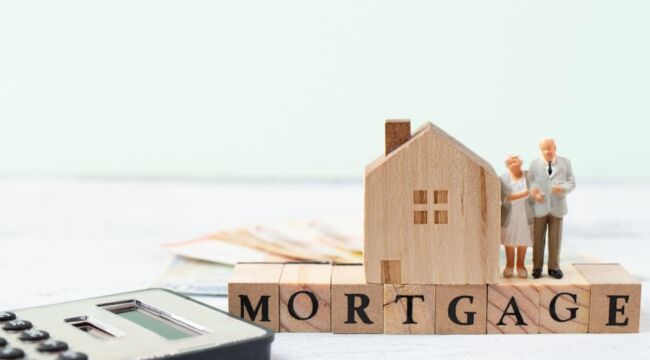The Whys of Home Ownership
Many financial commentators, including my esteemed colleague, James Altucher, poopoo the idea of owning a home. They have good reasons to do so. Homeownership has become exceptionally expensive in desirable areas, and many houses have become money pits.
As a recent homeowner, I can attest to the benefits of owning your own property when done right. By ‘right,’ I mean being mindful of your budget, choosing the right location, and having a financial cushion for unexpected expenses and improvements.
But first, let’s go through the reasons not to own a home.
It’s Too Expensive
One primary deterrent to homeownership is the sheer cost. In many markets, housing prices have skyrocketed, making it increasingly difficult for average earners to afford a home. However, it’s important to remember that with careful planning and financial discipline, homeownership is still within reach for many.
This expense isn’t limited to the purchase price alone but extends to maintenance, property taxes, and unexpected repairs.
The financial commitment required strains budgets, especially for first-time buyers who don’t have significant savings or equity from a previous property.
With rising living costs, allocating a large portion of income to housing leaves little room for other essential expenses and savings goals, such as retirement or children’s education.
Mortgage Rates Are Too High
In recent years, mortgage rates have significantly increased. High rates mean higher monthly payments, reducing affordability for many. This situation discourages prospective buyers who might otherwise take the plunge into homeownership.
Higher rates can also impact the total amount of home loan one can qualify for, leading to compromises on the type and location of the property. The volatility of interest rates adds another layer of uncertainty, making it challenging for buyers to plan their finances accurately.
For those with variable-rate mortgages, fluctuating rates can lead to unexpected spikes in monthly payments, causing financial distress.
Ongoing Costs Are Punitive
Owning a home is not a one-time expense. Ongoing costs like utilities, insurance, and property taxes add up quickly. Maintenance and repairs are inevitable, and these costs are usually frequent and substantial.
Regular maintenance, such as plumbing, electrical work, and roof repairs, requires time and financial resources. Unexpected issues, like a broken furnace or water damage, can lead to significant, unplanned expenditures.
Homeowners must also consider the cost of landscaping, pest control, and other services to keep the property in good condition. These continuous financial demands can strain budgets and create stress for homeowners.
You Can’t Move
Homeownership ties you to a location, which is a significant drawback for those whose careers require frequent relocations or who simply enjoy the freedom to move around. Selling a home is usually lengthy and complex, making it difficult to move on a whim.
Market conditions, such as a downturn in the housing market, further complicate selling, potentially leading to financial losses.
The emotional and logistical aspects of moving—finding a new home, adjusting to a new community, and dealing with the physical move—can be daunting. (Trust me, we didn’t factor in this cost… and it’s enormous.)
This lack of flexibility is a significant disadvantage in a rapidly changing job market or personal life circumstances.
And finally…
The Government Has You Right Where It Wants You
There’s a perception that owning a home places you under the government’s thumb, with property taxes being a continual financial obligation.
Additionally, government policies and zoning laws significantly impact property values and the feasibility of making home improvements. Changes in tax laws or property assessments can lead to unexpected increases in tax bills. Zoning regulations restrict homeowners’ ability to modify their property to suit their needs or increase its value.
Moreover, local governments often impose fees for various services and permits, adding to the financial burden. This perception of control and unpredictability is unsettling.
So why would you ever buy a house? Here are a few reasons:
Buying Well (You Didn’t Pay More Than 3x Your Income)
In an earlier edition of the Morning Reckoning, I wrote:
Never spend more than three times your gross annual income on a house.
I’m in the process of buying a house right now and I’m well within this rule.
My down payment is ready and won’t empty my account, and my monthly payments are easily manageable.
Far too many people only calculate what their monthly payments would be at the current rate of their mortgage. But if you’ve got an adjustable-rate mortgage, that could easily end in tears.
There’s no need to overpay for a McMansion.
The key to intelligent homeownership is buying within your means. If you’ve purchased a home that costs no more than three times your annual income, you’re less likely to be financially overextended.
This approach allows you to comfortably manage your mortgage and other expenses. Following this rule ensures that housing costs remain a manageable portion of your budget, leaving room for other financial priorities.
Additionally, buying within your means reduces the risk of foreclosure and financial distress, giving you greater peace of mind.
It also allows for the flexibility to handle unexpected expenses without jeopardizing financial stability. This strategic planning gives you a sense of control and empowerment over your financial future.
Increasing Your Down Payment Lessens the Sting of High Mortgage Rates
A higher down payment reduces the principal amount of your mortgage, reducing the interest you pay over the life of the loan.
This strategy makes homeownership more affordable even when mortgage rates are high. It also means you’ll build equity faster. Putting down a larger sum upfront lowers your monthly payments, making your financial obligations more manageable.
Additionally, a substantial down payment can sometimes lead to better loan terms and lower interest rates, further enhancing affordability. Building equity quickly provides a financial cushion, which owners can use for future investments or emergencies.
Maintenance Capital Expenditure
Regular maintenance and upgrades enhance the value of your property over time. Wise capital expenditures prevent more significant, more costly issues down the line and ensure that your home remains a valuable asset.
Regular maintenance keeps the house in good condition, preserving its market value. Upgrades, such as energy-efficient appliances, modern fixtures, and landscaping improvements, can increase the property’s appeal and value.
Preventative maintenance, like roof inspections and HVAC servicing, reduces the risk of major repairs, saving money in the long run. These investments maintain and boost your property’s worth, making it a more valuable asset over time.
These costs sound onerous, but if you own an asset, you’ve got to keep it well.
You Can Still Move, But Smarter
While homeownership does tie you to a location, it doesn’t mean you’re immobile.
Renting out your home is viable if you need to move temporarily. Additionally, selling a well-maintained property in a good market can provide the capital required for your next purchase or move.
Renting out your home offers flexibility and can generate additional income. Selling strategically during favorable market conditions ensures you maximize your investment return. Moreover, advancements in technology and services, such as property management companies, make renting your home more manageable.
These options provide mobility while still enjoying the benefits of homeownership.
The Government Isn’t Nearly As Big a Problem As You Think
While it’s true that property taxes and regulations are part of homeownership, they’re not insurmountable obstacles.
Many homeowners benefit from tax deductions on mortgage interest and property taxes. Furthermore, government programs often assist first-time buyers, making homeownership more accessible.
Tax benefits significantly offset the cost of homeownership, providing financial relief.
Government incentives, such as grants and low-interest loans, help make home-buying more attainable for many.
Additionally, understanding and navigating local regulations can minimize their impact. Proper planning and knowledge make the perceived government burden manageable and less daunting.
Again, get an accountant and lawyer who understands these things and can advise you on the best course of action.
Wrap Up
Buying a home is deeply personal and situational.
Weighing the pros and cons helps prospective homeowners make informed choices that align with their financial goals and lifestyle preferences. Despite the challenges it may present, homeownership remains a cornerstone of economic stability and personal achievement for many.
For those who buy wisely and plan strategically, the rewards of owning a home can far outweigh the drawbacks.
It’s essential to approach homeownership with a clear understanding of the financial commitments and responsibilities involved, ensuring a prosperous investment in your future.



Comments: